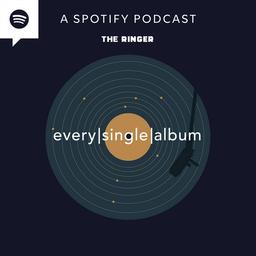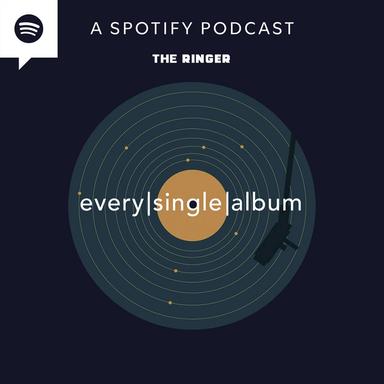Pour One Out for the Gaylors
The subset of Swifties with a different view on Taylor Swift’s sexuality are not taking her engagement to Travis Kelce well
Taylor Swift announced her engagement to Travis Kelce on Tuesday, via an Instagram post featuring the usual trappings of the form: a faraway shot of Travis on one knee, a close-up of the sparkler, a Taylor Swift song soundtracking the whole thing as you zoom in hungrily on every photo.
But for those with eyes to see, there was much more hidden in this announcement. It took place in a garden similar to the one featured in promo shots for Lover—an album conspicuous in its use of queer imagery, as well as its trumpeting of queer themes and causes. There appeared to be a headphone imprint in Taylor’s hair, so the engagement must have happened right after she recorded her appearance on Kelce’s podcast, New Heights—meaning, apparently, that she wanted to get both the recording and proposal over with so she could hightail it away from her new fiancé ASAP. The dynamite emoji in the caption represents, um, burning down the patriarchy and heteronormative constructs? And, most damningly of all, she wore a black-and-white-striped dress: evidence that she’s a prisoner in this relationship.
Dubious as these theories may seem, they represent another day in the trenches for legions of Gaylors, who dissect Swift’s life and lyrics for sapphic signs, what they see as clues she’s sending them about her sexuality. After the engagement was announced, some corners of the internet celebrated what they thought was the death blow for the Gaylors’ creed: If she’s engaged to Travis, surely she must not be faking her attraction to men. Some Gaylors did, indeed, seem to give up the ghost; others, however, doubled down, pointing to the performative nature of the announcement (as if any engagement announcement isn’t a little bit performative) and the Easter eggs they’d uncovered within it as proof that the Gaylor theories still hold true.
Pretty recently, of course (like, in that podcast episode she recorded with her soon-to-be fiancé a few weeks ago), Swift reiterated that she doesn’t leave her fans Easter eggs about her own life. She might have at one time (who could forget the “maple latte” hidden in the liner notes for Red), but she’s since denounced the practice of using her lyrics to decode secrets about her private life or, more pointedly, to sexualize her friendships with other women, as if the music she’s making can’t stand on its own without some covert meaning attached to it. In the rollout for Folklore and Evermore, she talked about how freeing it was to take on different personas in her music, blissfully unburdened of the task and fallout of personal disclosure. And now we know for sure: When she’s engaged, she’ll tell us; there’s no need to comb through her songs to figure out whether she has a secret girlfriend.
Then why, despite these entreaties, have Gaylors’ efforts continued (mostly) unabated, ever since those first murmurings about Taylor’s supposed dalliances with Karlie Kloss and/or Dianna Agron? Some insist that it’s just an act of building community, bonding with other (usually queer) fans in a subsection of Swifties set apart from the “Hetlors” (“heterosexual” + “Taylor”). Others see their labyrinthine acts of interpretation as almost a service to Swift: They witness her truth even when no one else—including her—seems to, or when she might not feel safe saying it outright. For instance, when she introduced “Lavender Haze” to the world, fans found clues that seemed left just for them even though Taylor insisted that the song was actually about keeping her love life private. Lavender is, after all, an emblematic color of the lesbian community, and we all know what a lavender marriage is.
It can be hard (for Gaylors, at least) to take someone at her word when she communicates best through her music. That’s the thing that’s really kept them going, despite Taylor’s own protests and her relationships with one tall, blandly handsome man after another: There are just enough credible clues (in the eyes of Gaylors) that it seems like she might be relaying some secret message (and Taylor does love a secret message). Lover, as mentioned, is explicitly queer coded, and there are enough open-to-interpretation lyrics in her songs (and her actions) to lend themselves to reams of Gaylor playlists, a New York Times op-ed, and Zodiac-killer-level conspiracy theories. There’s a reason the Gaylor community has been compared to QAnon: Even in the face of every proof that what they think is false, they can point to different proof that what they think is true. And it can sure feel rewarding to be one of the sole knowers of the truth, on the outside looking in.
Taylor’s rewarded close readings of her lyrics in the past—what else were those Secret Sessions other than a carrot for her most obsessive, online fans? But even more than close reading, what I think she cares about is that her listeners bring her songs into their own lives, not use them to invade hers. She’s said that “All Too Well” is her favorite song to perform live because she can look out and see an audience of people who’ve used it to soundtrack their own heartbreaks and big feelings. It’s gone so far beyond her own experiences that it’s not even about her experiences anymore. That’s when reading her music through a queer lens makes the most sense: if you’re using it to process and narrativize and add some color to your own life, instead of Taylor’s. Just because we feel like we can know her through her music doesn’t mean we can ascribe an identity to her that she hasn’t adopted, out loud, herself.
Gaylors’ grief (and/or ongoing commitment to the cause) isn’t reason to harass them, obviously; the /GaylorSwift Reddit page went private after her engagement was announced, presumably to protect its members from bullying and the victory laps of Hetlors everywhere. Much as I love the internet, it can be exhausting: for people making fan theories, for people who want to take down those fan theories, and for the people making the music those theories are based on. It makes me long for a time when music was just something you listened to alone in your bedroom and celebrity engagements were something you read about in magazines at the grocery store. Because there really is nothing wrong with inserting your own interpretations into someone else’s songs—but the online loudspeaker makes it so that the person who made that music can hear everything we’re saying, if she so chooses. And sometimes those interpretations are weirdly weaponized—some people seem angry that Taylor hasn’t come out, as if she owes them that after all the time they’ve spent decoding her every move on Reddit. But so it goes, I guess. I wonder what Easter eggs the Gaylors will find at her wedding?



